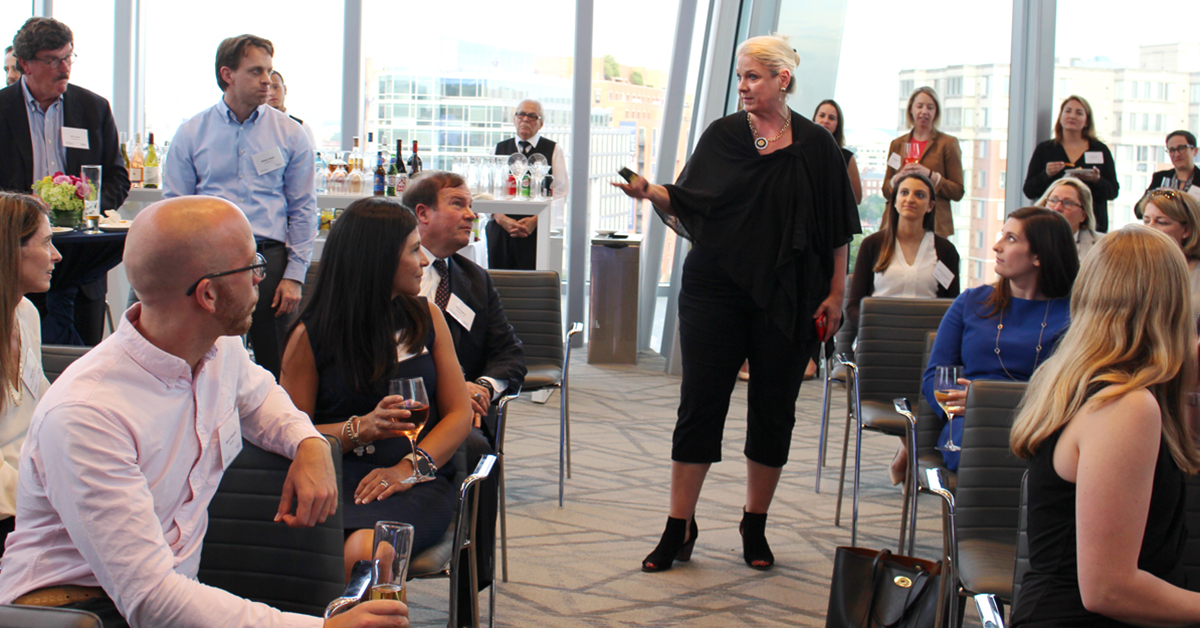
What do hostage negotiators, TV's Mister Rogers, Fortune 50 company leaders, and Michelle Obama have in common? They are all fluent in body language, a skill that can be vital to negotiating complex multi-million-dollar deals or luring a stubborn teen away from their phone. On Wednesday night, Women Attorneys at Venable (WAVe) hosted an event featuring Celebrity Lie Detector Janine Driver, founder of the Body Language Institute. The interactive program, one of WAVe's ongoing opportunities for career development, explored the meaning and impact of nonverbal cues when communicating as peers and professionals. As Driver explained, body language is expressed about five seconds before speech, a delay long enough to lose that deal or to give your screen-obsessed kid an out if you're not mindful of your movements.
Driver began her presentation untraditionally at the back of the room, among the audience, where she quickly read the body language of the attendees. Those with a hand on their hip were feeling pretty confident (two hands, and we're in Wonder Woman territory). Anyone with palms crossed might have seemed bored and disinterested (though few remained so for long).
While there are thousands of gestures, Driver focused her presentation on those that are most common and revealing. Some are gender specific: women tend to brush their hair away from their necks when stressed, while men pat the back of their head. Some are universal: if a person rubs their leg or neck in what's known as the pacifier gesture, they may be lying or feeling uncomfortable. If you want to empower yourself, try talking with your hands in the steeple position (fingers together, palms slightly apart) like Oprah does. In Driver's words, "If you want to win, put your hand on your chin," a gesture frequently adopted by former Pepsi CEO Indra Nooyi. If you want to put people at ease, try gently popping your shoulders like Michelle Obama does when giving a speech.
At the end of the presentation, the standing-room-only crowd shared their approval with a standing ovation.
Awareness of nonverbal communication is critical. It can help us better read a room, relate with a client, or be "effective" rather than simply "right." Most importantly, it can make us more successful professionals.
WAVe is committed to creating opportunities for the advancement of women in the workplace. Visit Venable.com/WAVe for upcoming events, programs, and seminars.